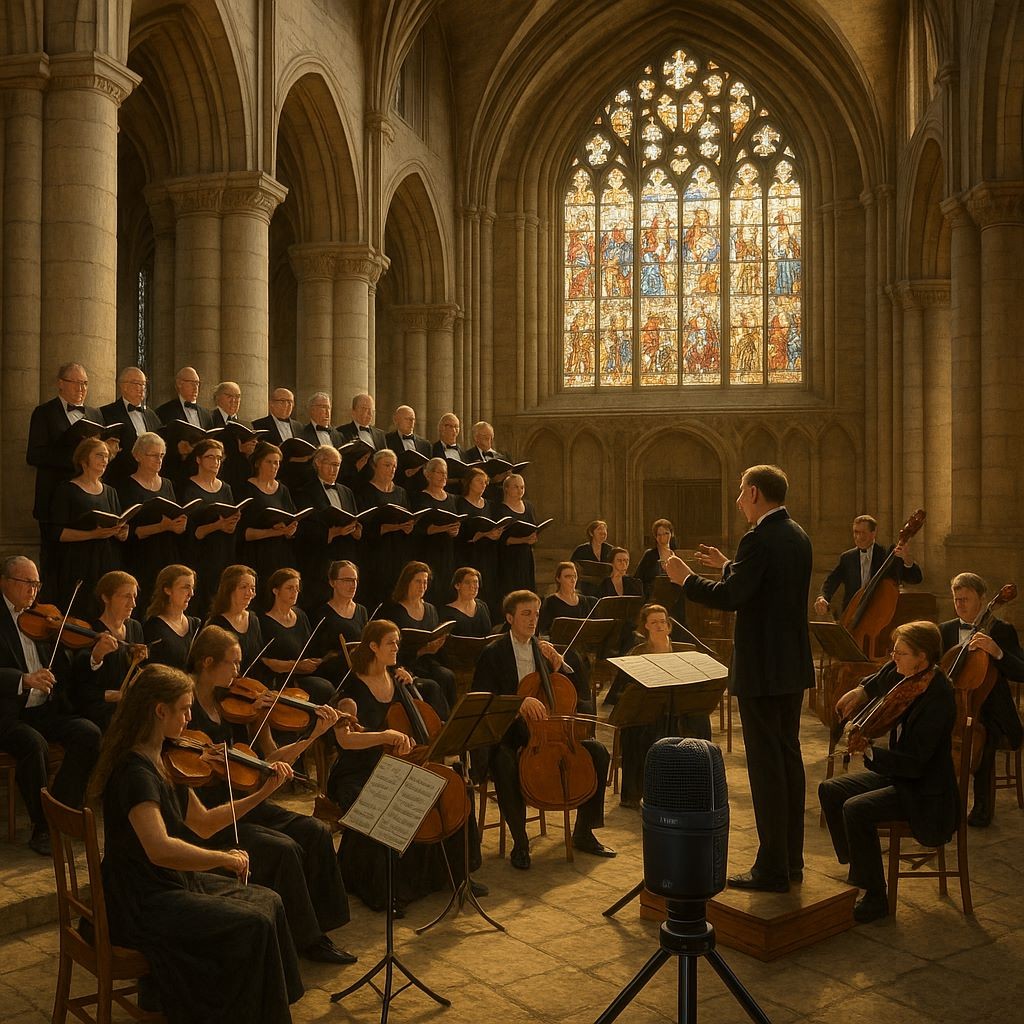
For Midsummer's Day, I took part in a performance of Bach's B Minor Mass at Pershore Abbey. The Elgar Chorale was founded in 1980 and its current musical director took over in 2015. There was a 45-year anniversary, and a 10-year anniversary to celebrate, so the choir decided to splash out on something grand.
There was no money to be made from this, and is expecting a heavy loss of several thousand pounds, It is just not possible to sell enough tickets at a high enough price to cover the cost of the hire of the Abbey, a 20-piece orchestra, half a dozen soloists, on top of the usual costs of staging the event and preparing for it. There is not the popular demand for classical music. It is not Glastonbury, where talentless rappers can make huge fortunes out of fashion and being a celebrity.
The musical director asked me to record the concert, since he was giving a talk on it, and was eager to use his own interpretations to illustrate what he wanted to say. The choir were first up with the final run-through, so I set up my stand and my Zoom H2n device ready for the evening. Then the professionals arrived.
When the choir broke off, one of them spotted my machine and asked what it was. I said that it was for the musical director only, and that it would go nowhere further unless he cleared the Performing Rights issues first, not even to other members of the choir. "I've heard that one before" came the response from the Professional. I told the musical director what had happened, and he said that he would seek permission from the professionals when they returned from the break. I found when after I returned, my machine was taken to the side. It was no surprise to me that the professionals refused to give permission for the concert to be recorded. It's happened before when professionals have been engaged.
I do not criticise them at all. I was myself once a professional actor as a teenager, working for the Royal Shakespeare Company in Stratford-upon-Avon. Walking to the theatre for a show, I was caught up in a promotional shoot for a speed boat company. I had no objection myself to my image being used, but one of the senior actors, Ian Richardson, saw what was happening and told the photographers that I was contracted to the theatre and that under no circumstances was my image to be used by them.
When people pay big money for celebrity "musicians" who are paid mostly because of their image, their fashionable status, and that they are commercially promoted well, rather than because they produce anything beautiful, they ignore one aspect about classically trained musicians. To achieve concert standard, especially professionally, it requires many years of intensive training and an ongoing regime of practice, taking up most of the day. It is as arduous as being a doctor or a lawyer, but the pay is often pitiful.
When there are "difficult decisions" to be made, it is culture that is the first to go, especially if it is regarded as "elitist" by politicians, who prefer rappers to spout their goosestep violence at us, if the influencers tell them to. There are an awful lot of notes in the B Minor Mass, and every single demisemiquaver must be performed in tune, on time and with beautiful tone. It is only fair that when a professional player gets a gig, he or she is paid enough for it to support their art.
I imagine that there is a clause somewhere giving each one recording rights as an additional fee, but this would have cost the choir dearly, and not something it could really afford. Therefore, best to abandon any recording, and accept that once the concert is over, that is the end of it until it is put on again.
I wonder sometimes if such considerations were weighed up when the BBC wiped all those classic episodes.